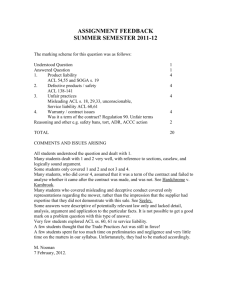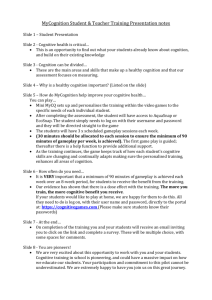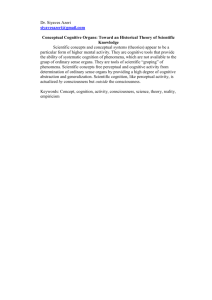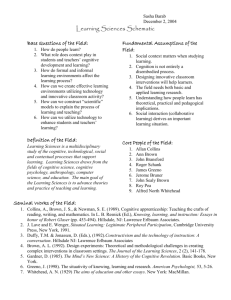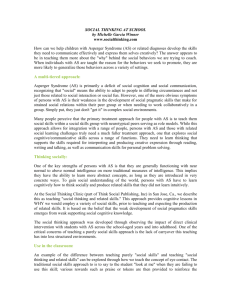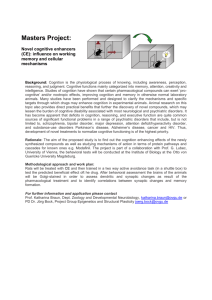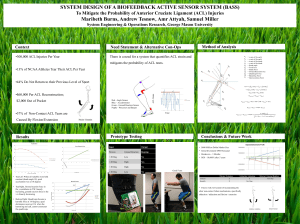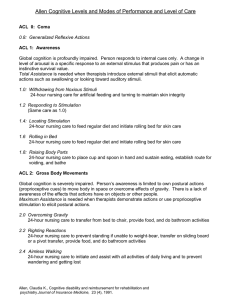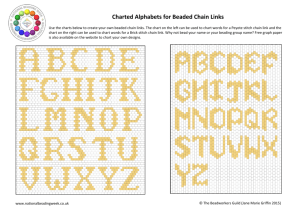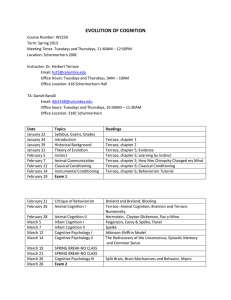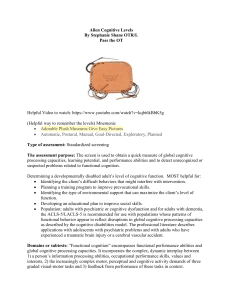File
advertisement
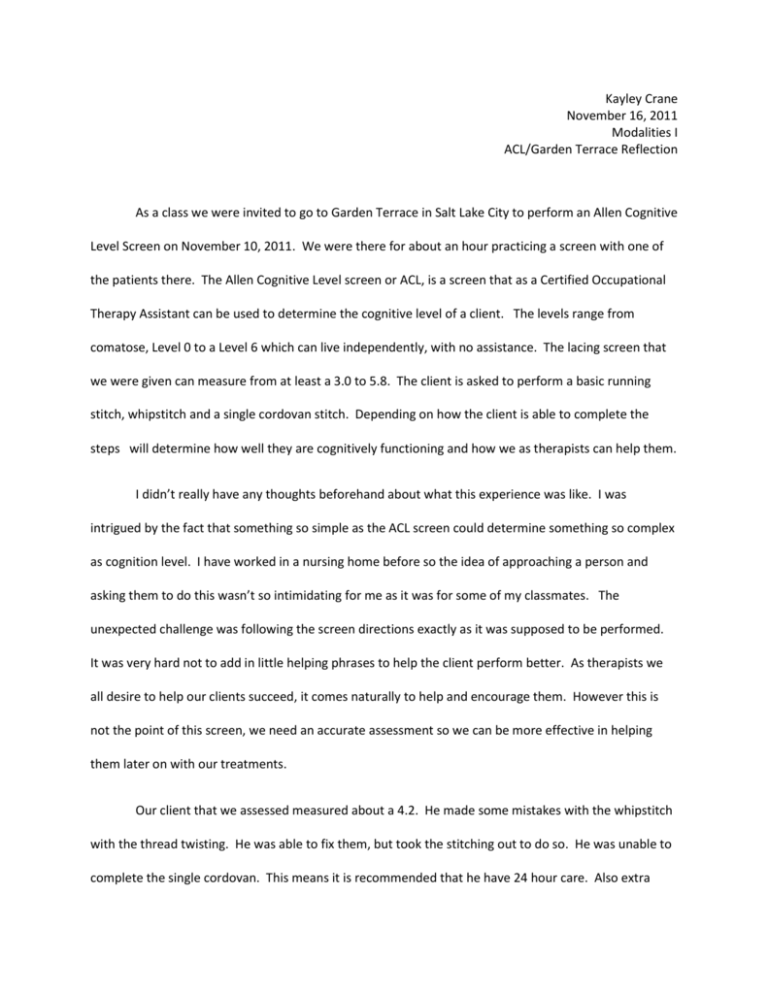
Kayley Crane November 16, 2011 Modalities I ACL/Garden Terrace Reflection As a class we were invited to go to Garden Terrace in Salt Lake City to perform an Allen Cognitive Level Screen on November 10, 2011. We were there for about an hour practicing a screen with one of the patients there. The Allen Cognitive Level screen or ACL, is a screen that as a Certified Occupational Therapy Assistant can be used to determine the cognitive level of a client. The levels range from comatose, Level 0 to a Level 6 which can live independently, with no assistance. The lacing screen that we were given can measure from at least a 3.0 to 5.8. The client is asked to perform a basic running stitch, whipstitch and a single cordovan stitch. Depending on how the client is able to complete the steps will determine how well they are cognitively functioning and how we as therapists can help them. I didn’t really have any thoughts beforehand about what this experience was like. I was intrigued by the fact that something so simple as the ACL screen could determine something so complex as cognition level. I have worked in a nursing home before so the idea of approaching a person and asking them to do this wasn’t so intimidating for me as it was for some of my classmates. The unexpected challenge was following the screen directions exactly as it was supposed to be performed. It was very hard not to add in little helping phrases to help the client perform better. As therapists we all desire to help our clients succeed, it comes naturally to help and encourage them. However this is not the point of this screen, we need an accurate assessment so we can be more effective in helping them later on with our treatments. Our client that we assessed measured about a 4.2. He made some mistakes with the whipstitch with the thread twisting. He was able to fix them, but took the stitching out to do so. He was unable to complete the single cordovan. This means it is recommended that he have 24 hour care. Also extra time should be given to complete tasks, ADLs can be performed but items should be placed in easy reach and reminders given to help complete the task. Routines are helpful for this client as well as clear promptings. We were not given a lot of time to assess this client in other ways, but it does seem to be fairly close to what he was functioning at. I am impressed by the screen and how it can determine so much. I am interested in using this more in my practice to determine cognition levels. I can really appreciate the simplicity of this test and the portability. I am interested using this to help determine my treatment and also explaining to caregivers what can and cannot be expected from the client. I really appreciated being able to see this in real practice setting. A lot of what we learn in class feels like theory, so to have a chance to practice it with someone who is truly cognitively impaired really helped me to apply it. This really was a great learning experience for me.
